
Employees Stop Getting Paid For Overtime, Boss Is Flabbergasted They Won’t Help Her After Hours
InterviewSometimes at work it’s impossible to fit in the scheduled hours. That’s when overtime enters the picture. It was the case in the redditor u/tokiohy’s story they shared with the ‘Malicious Compliance‘ community.
Their co-workers at a Home Health agency didn’t mind staying a few minutes longer until their boss said they weren’t allowed to. The situation changed when the superior needed assistance after office hours. The employees refused to help, which led to changes in the company’s overtime policy and an irritated boss.
Bored Panda has reached out to the author of the Reddit post. You will find their thoughts in the text below.
Some bosses tell their employees not to work overtime, only to continue bothering them after work hours regardless
Image credits: DC_Studio (not the actual photo)
This person refused to help such a boss, complying with their request in a malicious way, yet the boss didn’t seem pleased about it
Image credits: wichayada69 (not the actual photo)
Image credits: tokiohy
Reasons for working overtime as well as the number of hours vary depending on the country, the company, and, of course, the employees themselves
There are lots of reasons people stay longer than scheduled. A number of them do so for their financial well-being, others want to show dedication by going the extra mile. Some might even enjoy what they do so much, they lose track of time. To each their own, as they say. But one thing is clear, overtime is a phenomenon that affects people all over the world.
What counts as overtime varies from country to country because of different labor laws. For instance, an average week for a full-time employee in Mexico is 48.5 hours, yet nearly 30% of Mexican workers collect over 50 hours. That makes this beautiful place number one on the list of the most overworked countries in the world. It is followed by Costa Rica, then South Korea, Russia, and Greece.
The US occupies the 10th place on the aforementioned list. The average work-week there is 41.5 hours, but roughly 11% of employees do more than 50. Unfortunately, the situation in the country now is worse than it was decades ago. Due to inflation, the average hourly wage has decreased, yet the average number of hours spent working hasn’t. Vice versa—the latter actually increased.
Image credits: YuriArcursPeopleimages (not the actual photo)
Working too much can lead to not only stress and declining health, but to hazardous situations in the workplace as well
Overtime policies differ not only according to the country, but the company as well, as each boasts specific regulations. And they are implemented for a reason. Working extra hours can lead to not only drained workers but dangerous situations as well. Research revealed that jobs with overtime schedules had a way higher injury hazard rate than the ones without. That’s why it’s important to regulate the time employees spend at work in order to avoid exhaustion-related accidents.
The number of hours burning the candle at both ends also differ based on gender. Statista showed that in this case, men are the first-place winners. According to the American Enterprise Institute, back in 2017, roughly a quarter (25.1%) of males spent over 41 hours a week at their jobs, while only 14.3% of their female counterparts did the same.
Work can be a stressful affair no matter the gender. Especially when the day extends long into the night. That happened to quite a few (48%) people working remotely during Covid years, who admitted to have stayed up past midnight because of their jobs.
Image credits: DragonImages (not the actual photo)
A surprising number of employed people receive calls from their boss after office hours, most of them pick up the phone
Sadly, even if you’re not willing to work after the scheduled shift is over, your boss might not care about it. Skynova indicates that over 26% of people receive a call from their boss after office hours a few times a week. One in five of them get such calls at least once in the same period. Surprisingly, the overwhelming majority answer their phone (only 0.9% say they never do). That might be one of the reasons Portugal made it illegal for superiors to contact their remote workers during after hours.
The redditor u/tokiohy was among the people who answer the phone when they see management on caller ID. However, they refused to help their superior in an act of malicious compliance. “Best advice when dealing with a boss like this—when you know you’re at the point of feeling burnt out or underappreciated, stand your ground,” the OP told Bored Panda. Such a move seemed to have worked as the company changed their overtime policy soon after. “In my opinion, [clear overtime regulations] help with the workflow and efficiency based on a person’s performance,” they added.
Even though the boss eventually stopped calling their employees, the OP shared that they have changed jobs since and are happy in a new workplace. Yet they didn’t hold a grudge: “I’m glad I’ve experienced dealing with a hard-headed boss and had the best coworkers to work along with until my departure,” they said.
Image credits: davidgyung (not the actual photo)
People in the comments had plenty to say when it came to this situation, sharing their own workplace experiences
In the EU, it's illegal for a company to call their employees like this. The exception is when the person is being paid to be on-call.
Really? Good to know, as I just got semifired by my soon to be ex boss in exactly this way, by calling me 3 hours ahead of shift instead of putting in her own frigging time and WAITING in her office until I actually Arrive to work?!
Load More Replies...Off topic; why do people feel the need to specify that English either is or is not their first language? Are people that judgemental that they won't take a post seriously just because of odd grammar? Genuinely curious; it seems strange to me. I say just try your best and if people ask for clarification, do your best with that too 🤷
Yes, people are extremely rude about proper English language, punctuation, and spelling. So that's exactly why non-native English speakers announce that. Even though they make it clear they are not native English speakers you will still see comments correcting them, not so much on BP since people on BP tend to be more courteous, but on Reddit where the original story is from and other forums.
Load More Replies...In the EU, it's illegal for a company to call their employees like this. The exception is when the person is being paid to be on-call.
Really? Good to know, as I just got semifired by my soon to be ex boss in exactly this way, by calling me 3 hours ahead of shift instead of putting in her own frigging time and WAITING in her office until I actually Arrive to work?!
Load More Replies...Off topic; why do people feel the need to specify that English either is or is not their first language? Are people that judgemental that they won't take a post seriously just because of odd grammar? Genuinely curious; it seems strange to me. I say just try your best and if people ask for clarification, do your best with that too 🤷
Yes, people are extremely rude about proper English language, punctuation, and spelling. So that's exactly why non-native English speakers announce that. Even though they make it clear they are not native English speakers you will still see comments correcting them, not so much on BP since people on BP tend to be more courteous, but on Reddit where the original story is from and other forums.
Load More Replies...
 Dark Mode
Dark Mode 

 No fees, cancel anytime
No fees, cancel anytime 



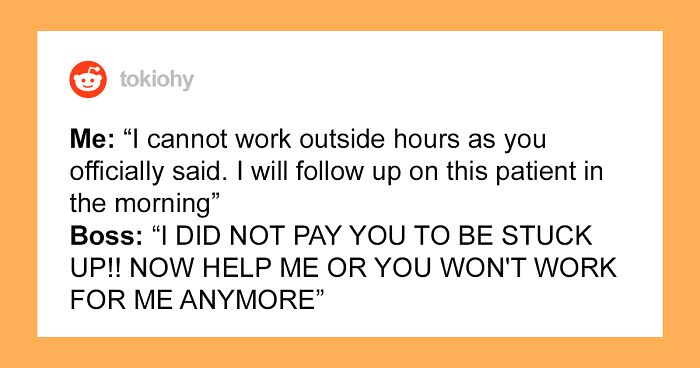









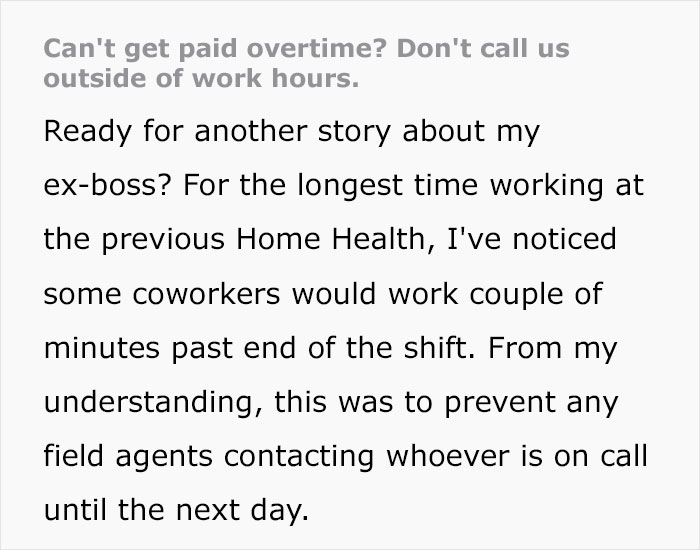
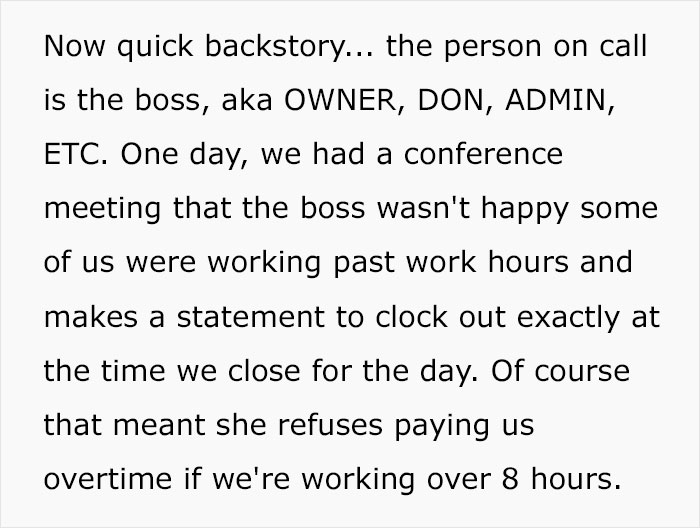
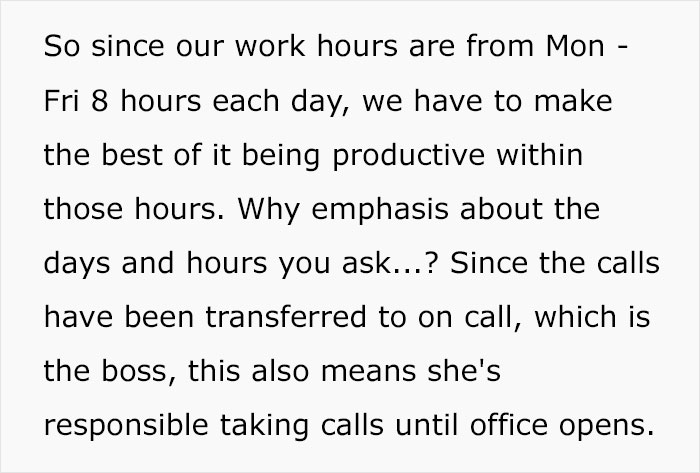
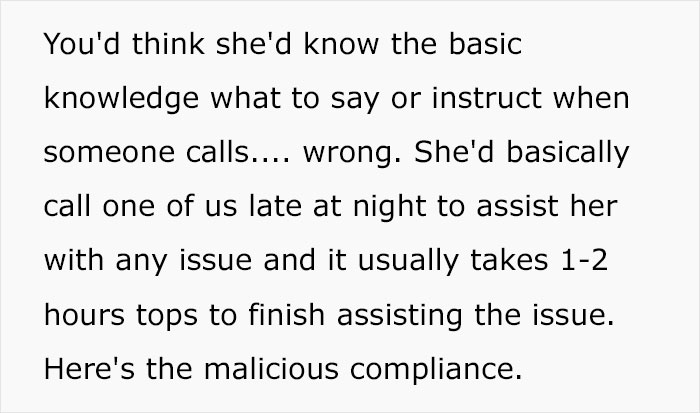
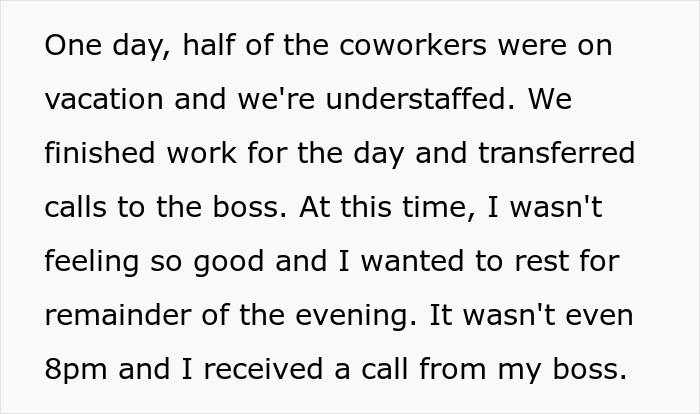

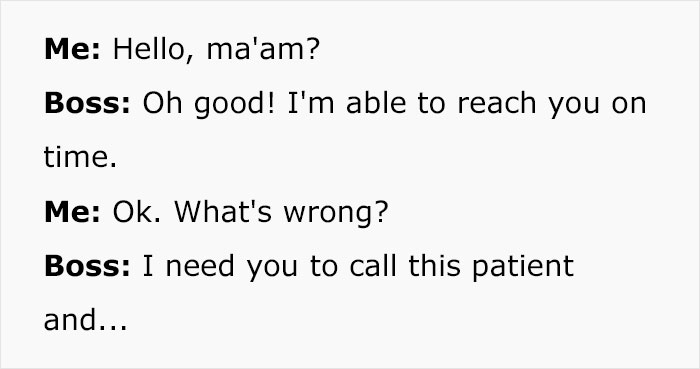
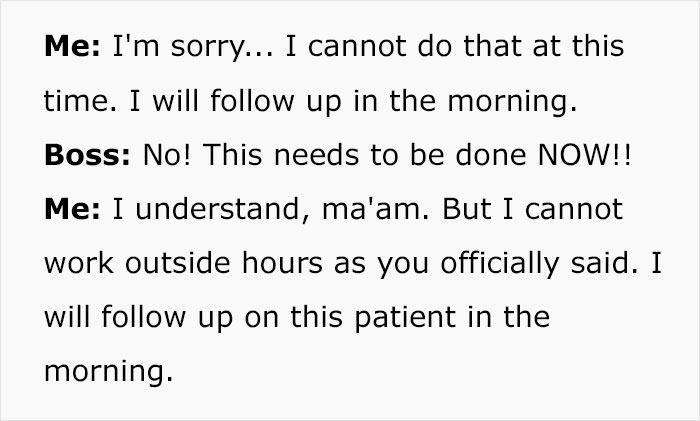
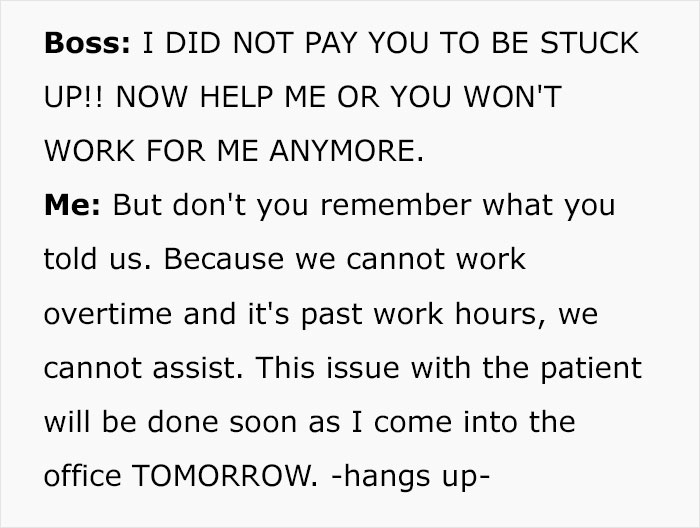
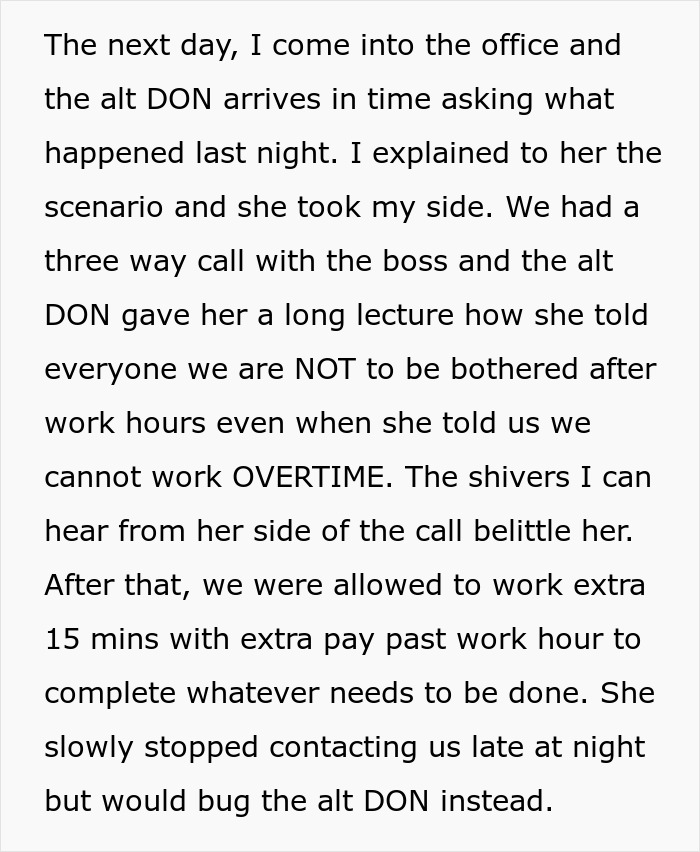





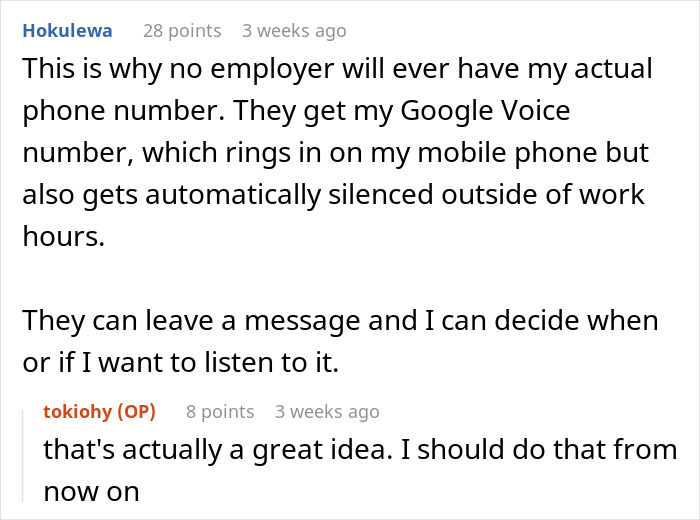






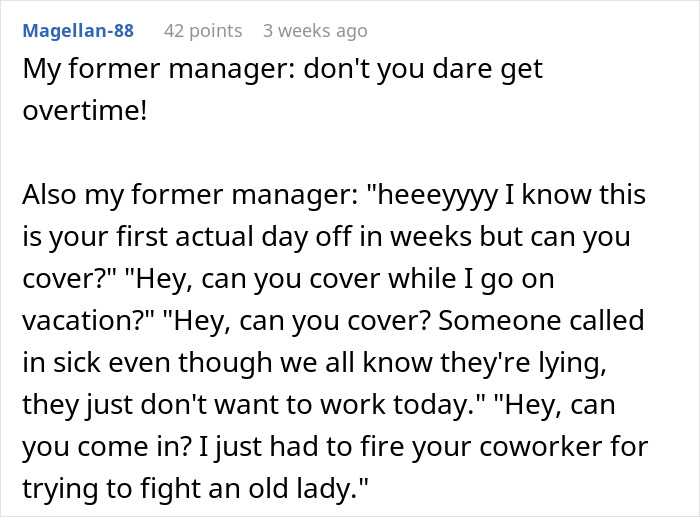


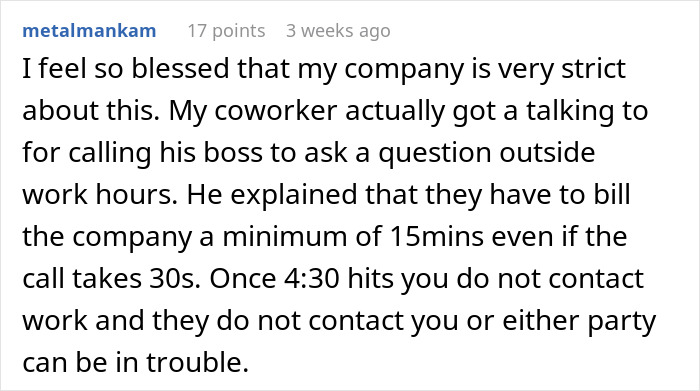
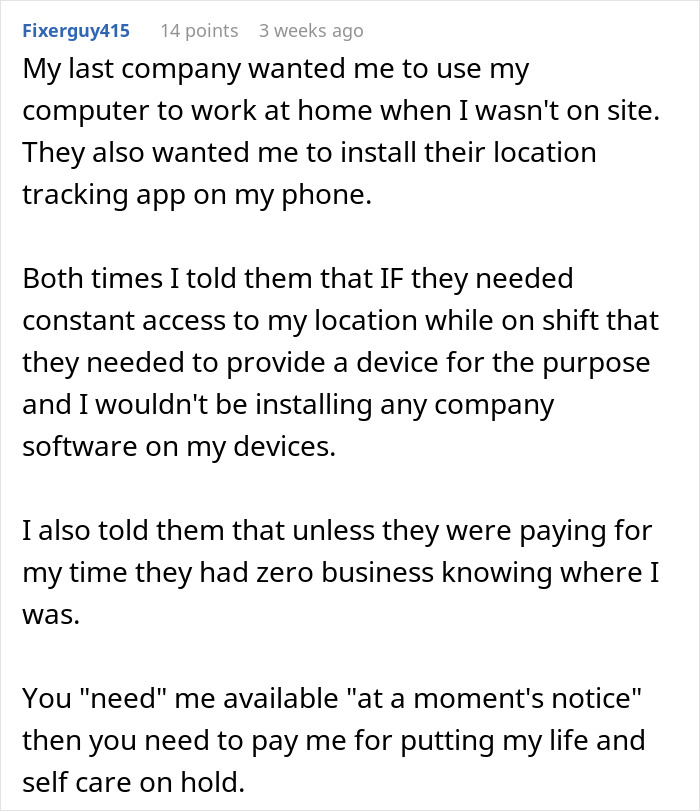
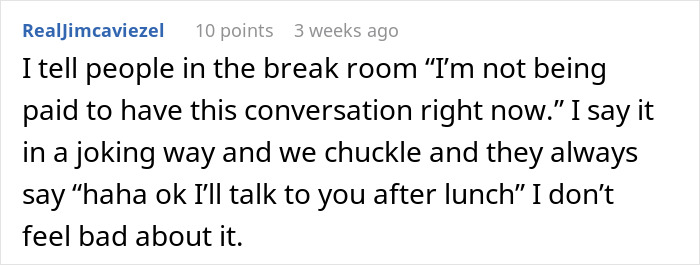


























72
18